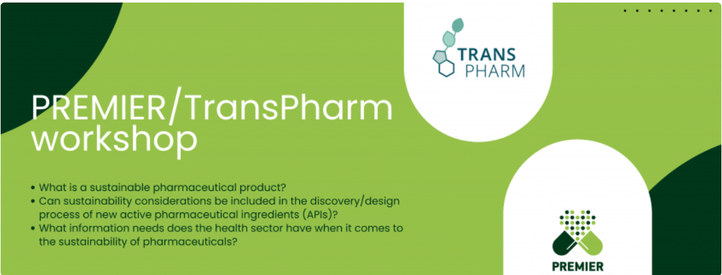Events
- BISC-E competition
The Bio-based Innovation Student Challenge Europe (BISC-E), organized by the End-of-Waste/RE-SOURCE.BIO and GREEN-CHEM networks from AUGent, encourages students to explore innovation and business development in the emerging bioeconomy while developing a new biobased product or process. The challenge is open for all Bachelor and Master students (+ PhDs as coaches).
The Bio-based Innovation Student Challenge Europe (BISC-E) is a Europe-wide student competition to stimulate entrepreneurship and award excellence. The programme offers student teams opportunities to practice entrepreneurship by addressing relevant technological, environmental, or societal challenges with innovative bio-based solutions.
BISC-E seeks to raise awareness and involve students in the transition towards a bio-based economy. A key objective of the BISC-E programme is to stimulate and support entrepreneurship in curricula at universities.
All student (Ba/Ma) teams develop a bio-based innovation (product or process) and present their ideas via a 15' live presentation to a jury of experts from industry and science during the Belgian final. The presentation has to be accompanied by a participation file with a few supporting documents explaining sustainability, technical feasibility and economic viability of your innovation.
The jury will first assess all applications via an online preselection based on a recorded presentation and the supporting documents. The 3 best teams will be selected for the Belgian finals to actually present for the live jury, followed by some Q & A. The winning team will receive personal coaching and will compete in the EU finals.
More info on the BISC-E challenge and info about previous winners can be found here.
The BISC-E competition is since 2024 embedded in the TechTour Circular event (hosted by Stad Gent and UGent).
- Workshops
Workshop “Advancing Green Chemistry Technologies” - Dec 2024
The Workshop “Advancing Green Chemistry Technologies” had the aim
- To discuss the green technologies of biobased fine chemicals and APIs.
- To facilitate proactive engagement and collaboration among industrial and academic partners.
- To foster interactive information exchange, raise awareness, and showcase successful applications of green chemistry methodologies.
- To map developments with a focus on sustainability, circularity, and carbon footprint reduction.
The programme and abstract book can be found here
Workshop “Sustainable solvents” - Sept 2022
The Workshop had the aim
- To discover alternative solvents that are safe & sustainable
- To hear from the industries developing new solvent technologies
- To discuss about new solvents
The programme and abstract book can be found here
The PREMIER and TransPharm workshop: The transition towards sustainable pharmaceuticals – assessing sustainability, from design & production to prescription & use
What is a sustainable pharmaceutical product? Can sustainability considerations be included in the discovery/design process of new active pharmaceutical ingredients (APIs)? And what information needs does the health sector have when it comes to the sustainability of pharmaceuticals?
These are some of the questions discussed during the PREMIER/TransPharm workshop on 4-6 April in Nijmegen, the Netherlands. The workshop brought together a unique range of experts and professionals representing different stakeholders involved in the discovery, production, prescription, use and regulation of pharmaceuticals.
During interactive small group sessions, several topics were discussed in depth such as the need for a sustainability assessment system and the criteria to consider when designing such a system, as well as opportunities for education and awareness raising. Although there was a consensus on the urgency for sustainable pharmaceuticals, it is generally seen as a complex task. Communication and inclusion of the different disciplines will be key, in order to align the goals and vision, and to share knowledge and experiences. This workshop marked the start of bringing these disciplines together.
“Yes, we can!”, was the conclusion when it comes to considering potential environmental impacts in the drug discovery and design process. “But we need clear criteria, reliable predictive tools and some examples to inspire us.” The predictive tools that are being developed by the PREMIER project were welcomed as a promising starting point but their usefulness remains to be demonstrated in practice. Hence, the need for inspiring examples.
To educate R&D scientists as well as healthcare professionals on sustainable pharmaceuticals there is a need for reliable and easy to understand evidence-based educational materials. Making pharmaceutical sustainability part of the formal educational curriculum is a next challenge.
The call for clear criteria to assess the greenness of pharmaceutical products was echoed in the second part of the workshop. Industry, regulators, academics and representatives from the health expressed a clear need for sustainability information along the lifecycle of pharmaceuticals, e.g. to green production or to stimulate products that have a limited footprint. There was a broad consensus that sustainability assessment of pharmaceutical products should not only focus on production but also include other potential environmental impacts such as ecotoxicological effects after use and impacts related to the marketing and distribution of the products. In the end, this should lead to appropriate drug use while minimizing unintended consequences (e.g. reduced access to medicines). Country-specific and cultural differences such as sanitation, patient profiles, and access to medicine as well as regulatory aspects should be accounted for when moving further with this assessment system. The TransPharm project will use this input to further develop this concept.
“It is a mammoth task to develop a system that measures all aspects of sustainability”, concluded host Ad Ragas at the end of the workshop. “But let’s not wait until we have perfect criteria on what constitutes a sustainable pharmaceutical. That discussion might take ages. We should move forwards and start experimenting. We will make mistakes, but we will learn from them. We need the courage to experiment and fail on our path to create more sustainable pharmaceuticals.”
No results were found.


